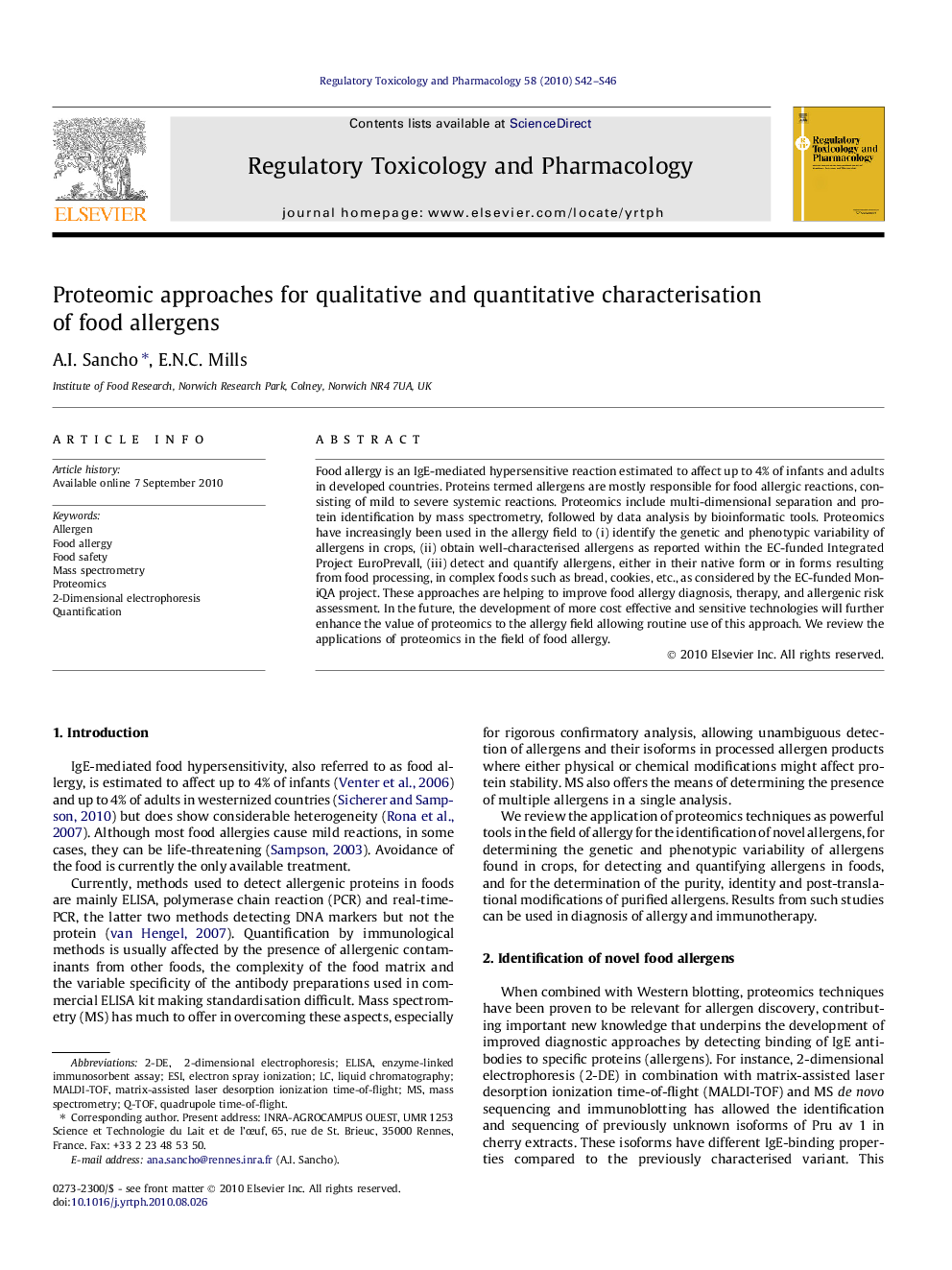| Article ID | Journal | Published Year | Pages | File Type |
|---|---|---|---|---|
| 2592461 | Regulatory Toxicology and Pharmacology | 2010 | 5 Pages |
Food allergy is an IgE-mediated hypersensitive reaction estimated to affect up to 4% of infants and adults in developed countries. Proteins termed allergens are mostly responsible for food allergic reactions, consisting of mild to severe systemic reactions. Proteomics include multi-dimensional separation and protein identification by mass spectrometry, followed by data analysis by bioinformatic tools. Proteomics have increasingly been used in the allergy field to (i) identify the genetic and phenotypic variability of allergens in crops, (ii) obtain well-characterised allergens as reported within the EC-funded Integrated Project EuroPrevall, (iii) detect and quantify allergens, either in their native form or in forms resulting from food processing, in complex foods such as bread, cookies, etc., as considered by the EC-funded MoniQA project. These approaches are helping to improve food allergy diagnosis, therapy, and allergenic risk assessment. In the future, the development of more cost effective and sensitive technologies will further enhance the value of proteomics to the allergy field allowing routine use of this approach. We review the applications of proteomics in the field of food allergy.
